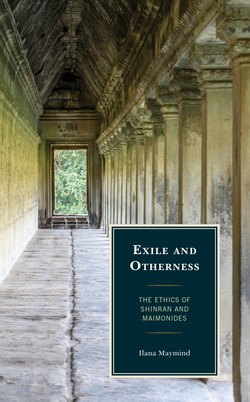Exile and Otherness

Реклама. ООО «ЛитРес», ИНН: 7719571260.
Оглавление
Ilana Maymind. Exile and Otherness
Отрывок из книги
Exile and Otherness
Series Editor: Douglas Allen, University of Maine
.....
Maimonides’ “Patriarchs”—Influences
In our discussion related to those who influenced Shinran’s thought, we focused on his Seven Patriarchs. In the case of Maimonides, his debt to his predecessors appears to be less straight-forward and depends on whether it addresses Maimonides’ debt in relation to his halakhic works or in relation to his philosophical writings. He acknowledges the influence on his thought of Aristotle, though read through the eyes of Alexander (active in the late second and early third century CE), Themistius (317–390), and Ibn Rushd (1126–1198). In addition to praising Ibn Rushd (al-Farabi), namely his Political Regime, Maimonides speaks highly of Ibn Bâjja and his Governance of the Solitary. He articulates his reverence for these thinkers in his introduction to the Commentary on Tractate Avot (“Eight Chapters”). Without referring to any specific names, he states that
.....